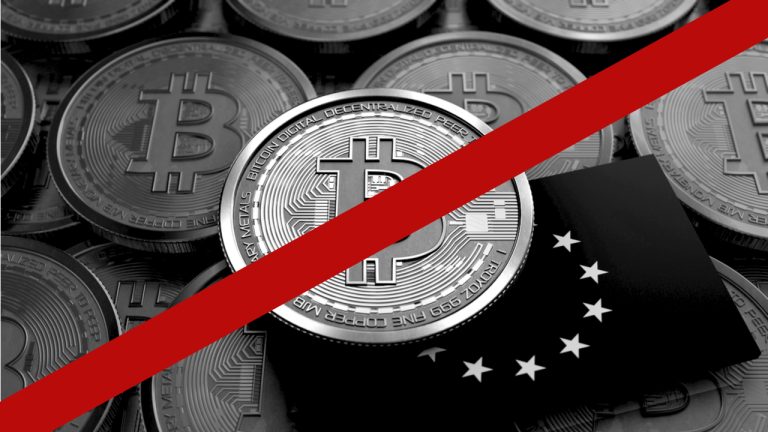
The states of the European Union have convened to establish a new limit on cash purchases and to strengthen the controls on cryptocurrency transactions. On Nov. 6 the bloc agreed to put a limit of €10,000 ($10,557) on cash payments and to exert stronger oversight on crypto transactions of over 1,000 euros ($1,055).
European Union to Limit Cash Usage, Ostensibly to Fight Money Laundering
The countries of the European Union have announced a set of new directives to make more difficult the usage of cash and other alternative currencies like crypto for criminal purposes. On Nov. 6, the bloc approved a new limit for cash payments, that will permit up to €10,000 ($10,557) in all of the countries that are part of the union. However, countries will be allowed to reduce the limit even more.
Currently, Spain has one of the lowest limits in this regard, allowing citizens to only pay up to €1,000 ($1,055) with cash. However, the European Central Bank (ECB) expressed its disagreement with this back in 2018, when the institution qualified the measure as “disproportionate” as it could limit the usage of cash as an effective legal tender.
It’s not just cash payments that will be affected by this new round of measures. Other sectors including jewelry and goldsmithing will also face heightened control from the organization.
Zbynek Stanjur, minister of finance of the Czech Republic, stated:
Cash payments of more than 10,000 euros will be impossible. Remaining anonymous when buying or selling crypto assets will be much more difficult. Hiding behind several layers of corporate ownership will no longer work. It will be even more difficult to launder dirty money with jewelry or goldsmithing.
The bloc will also introduce a new country system classification that will reflect the level of compliance of each one with Financial Action Task Force (FATF) recommendations, including gray and black lists.
Crypto Transactions Also Included
As Stanjur stated, cryptocurrencies will also be included as part of this set of measures. The European Union agreed that crypto transactions moving over €1,000 ($1,055) in value will face due diligence inquiries by the virtual asset service providers (VASPs) facilitating them.
Also, the European Union will subject VASPs to the same level of anti-money laundering and terrorism financing scrutiny that other financial institutions already face. These exchanges and custody providers will have to introduce risk mitigation elements when dealing with self-hosted wallets, and other specific measures directed to control cross-border payments using cryptocurrency.
What do you think about the latest set of anti-money laundering measures adopted by the European Union? Tell us in the comments section below.





